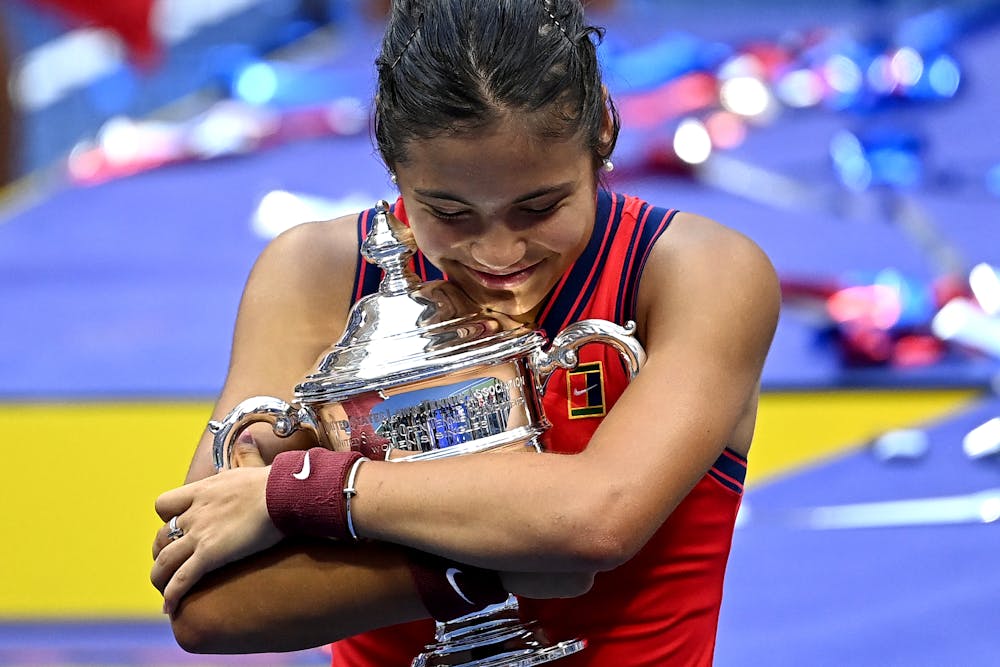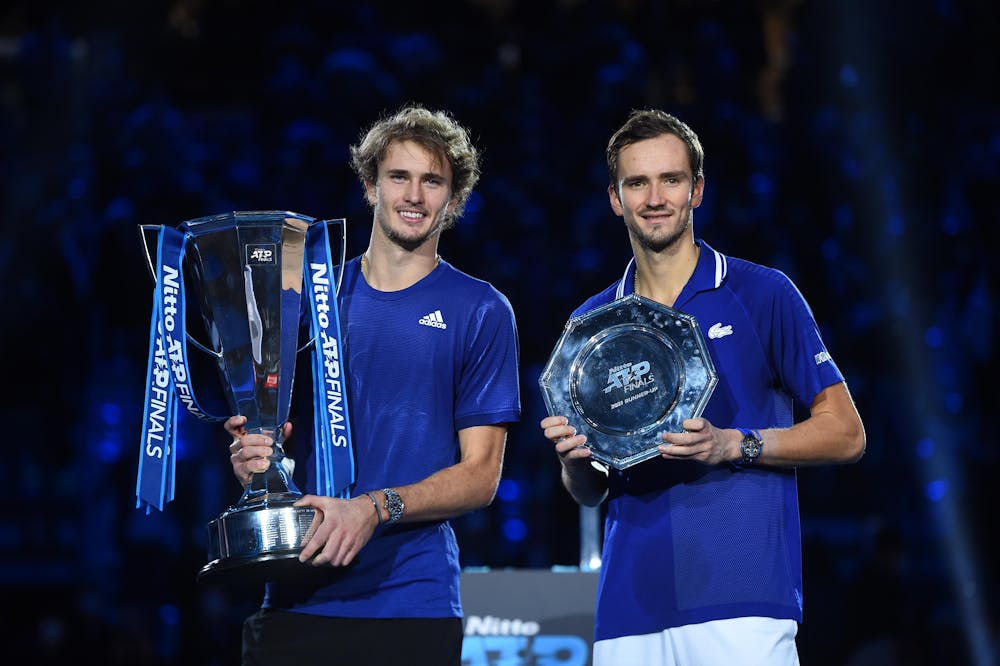What a riveting ride the 2021 season turned out to be.
Roland-Garros was once again another sensational instalment on the terre battue, sandwiched in the middle of 12 months of action across the globe.
Here are some of the lessons learned…
The 2021 season stretched into 12 months and delivered heroic performances and absorbing storylines at every turn.

What a riveting ride the 2021 season turned out to be.
Roland-Garros was once again another sensational instalment on the terre battue, sandwiched in the middle of 12 months of action across the globe.
Here are some of the lessons learned…
This season really had a fresh feel, with exciting and fearless talents striking all sort of statement wins.
Take Carlos Alcaraz. Juan Carlos Ferrero’s charge zoomed from world No.141 to No.32, turning heads at Roland-Garros and posting a US Open quarter-final.
Lorenzo Musetti, taking a two sets lead over Novak Djokovic on Court Philippe-Chatrier and fellow Italian Jannik Sinner (joining the Top 10), alongside Liudmila Samsova sparkling to inspire RTF to Billie Jean King Cup glory, are a couple of youngsters who stood out.
However, New York saw the true emergence of two explosive teenage talents.
10 matches, 20 sets, it was simply a fairytale. Emma Raducanu became the first qualifier to win a Grand Slam at the US Open with an instinctive brand of tennis. The Brit only made her WTA debut in June and gave us a glimpse of her true level by reaching the Wimbledon last 16, but was simply unstoppable in New York.
Raducanu’s composure and conviction were mindboggling, the-then 18-year-old dictating Canadian pocket rocket Leylah Fernandez 6-4, 6-3 in the final.
The Canadian, Roland-Garros 2019 girls’ champion, stirred the raucous Stateside crowd with her clockwork timing and raw passion. The 19-year-old ignited her charge by dismissing defending champion Naomi Osaka in a captivating three-set tussle. Three-time major winner Angelique Kerber was next, then Elina Svitolina, prior to a third Top five win in the fortnight, absorbing and deflecting Aryna Sabalenka’s gunpowder play 7-6(3), 4-6, 6-4 to book a final ticket.
The crowds loved it, the sporting world was fixated, Raducanu and Fernandez personified belief.
At the start of 2021 Ash Barty and Novak Djokovic sat on top of the rankings and they still do.
Barty brushed off quarter-final heartache at the Australian Open to pick up five trophies, including a mesmerising Miami Open title defence and a cherished triumph in London.
The Australian, on the 50th anniversary of her friend and mentor Evonne Goolagong Cawley's first SW19 success, became Wimbledon champion. Barty’s versatility and all-court excellence was on full display, finding the answers in a nerve-wracking 6-3, 6-7(4), 6-3 final scoreline over Karolina Pliskova, firmly stating herself as the world No.1.
27-1 was the gladiatorial Grand Slam record for fellow No.1 Djokovic this campaign.
The Serbian once again excelled in Melbourne (despite a nasty muscle tear), ruled Roland-Garros after dethroning Rafael Nadal in a classic semi-final and was on another level to the chasing pack at Wimbledon.
His Olympics dream was halted at the semi-final stage by eventual champion Alexander Zverev, but the 20-time Grand Slam champion (levelling with Nadal and Roger Federer) was just one victory away from a rare Calendar Grand Slam.
Considering the pressure and scrutiny, the ‘Big Three’ standings, those 28 major matches alone prove Djokovic is still very much the man to beat.
The women’s side of the game is truly compelling. Take Roland-Garros 2021 as a microcosm – for the sixth successive year, the women’s champion was a first-time Grand Slam winner.
Barbora Krejcikova instantly transferred from an elite doubles player to Roland Garros champion in singles and doubles (the first sweep of both since Mary Pierce in 2000).
The Czech’s heart-warming triumph, having been ranked outside the Top 100 last year, truly emphasised the depth of women’s tennis. Also, the last four in Paris were Krejcikova, Anastasia Pavlyuchenkova, Maria Sakkari and Tamara Zidansek, illustrating a plethora of players can vie for the top prizes.
Coco Gauff has to get a mention, the American teenage sensation broke all sorts of milestones again, particularly as the youngest woman to reach a major quarter-final since Nicole Vaidisova at Roland-Garros 2006.
Furthermore, six of the year-end Top 10 made their debut in this elite ranking standing in 2021, with Anett Kontaveit (WTA Finals runner-up) and Paula Badosa (Indian Wells winner) flourishing towards the season finishing line.
Ons Jabeur, the first Arab player to rank in the Top 10 from either tour, epitomises the variety on offer on the WTA. Those chipped drop shots are something else…
Justifiably the majority of the narrative on the men’s side has been connected to Djokovic, which makes it easy to overlook the majestic campaign of Daniil Medvedev.
The world No.2 rubber stamped himself as the nearest challenger to Djokovic, posting his best showing at each of the four majors.
His cunning, unorthodox play was at its peak at the US Open, dropping just one set to soar into the final. Djokovic had all the history on the line, but despite the occasion Medvedev seamlessly dispatched the top seed 6-4, 6-4, 6-4 – the tongue in cheek FIFA celebration highlighting his idiosyncratic approach.
The 25-year-old also spearheaded RTF to Davis Cup glory in December – Medvedev, Australian Open finalist too, is collecting significant silverware on a frequent basis and will look to use the US Open triumph as a platform.
Add into the mix Tsitsipas reaching the Roland-Garros final with some swashbuckling play, the blistering bullets fired from Zverev to land Olympic gold and ATP Finals silverware (taking down Djokovic and Medvedev in Turin), the top four have the artillery to dominate on any surface.
Talent such as Aslan Karatsev, Cameron Norrie and Casper Ruud kept key contenders on their toes with huge wins - it’s getting congested towards the top.
Still Djokovic and Nadal, down at world No.6, have the wealth of ‘been there and done it’ expertise, but Medvedev made a significant shift in 2021.
